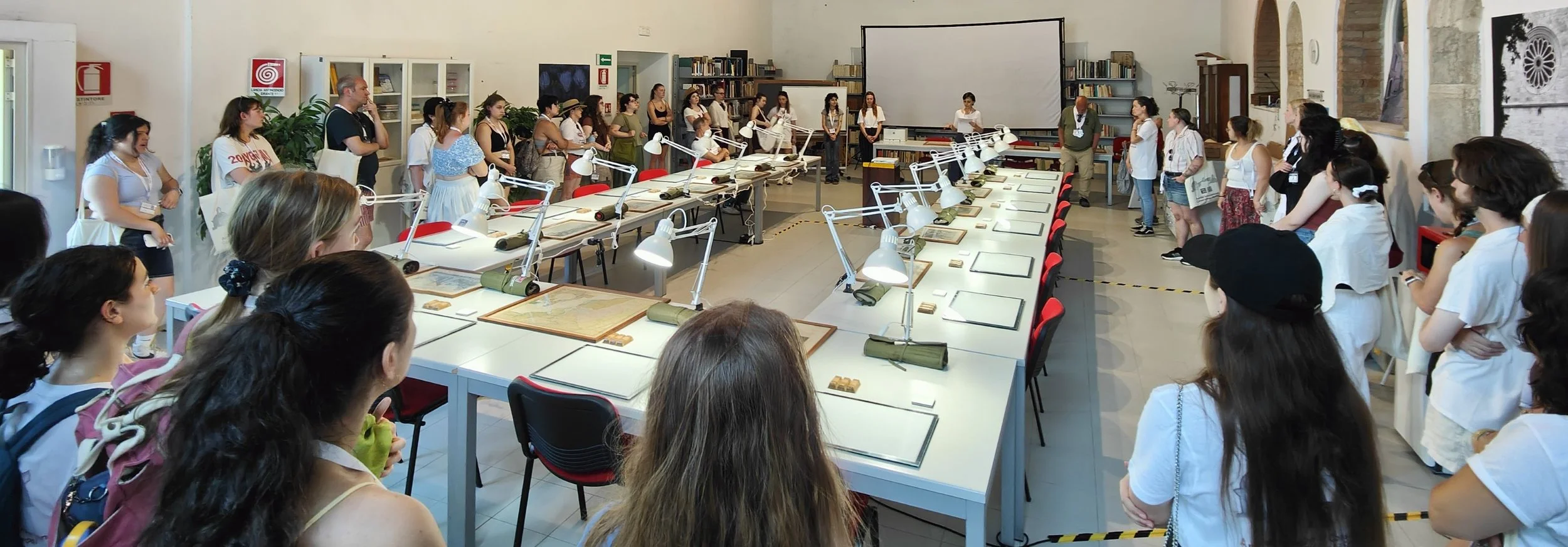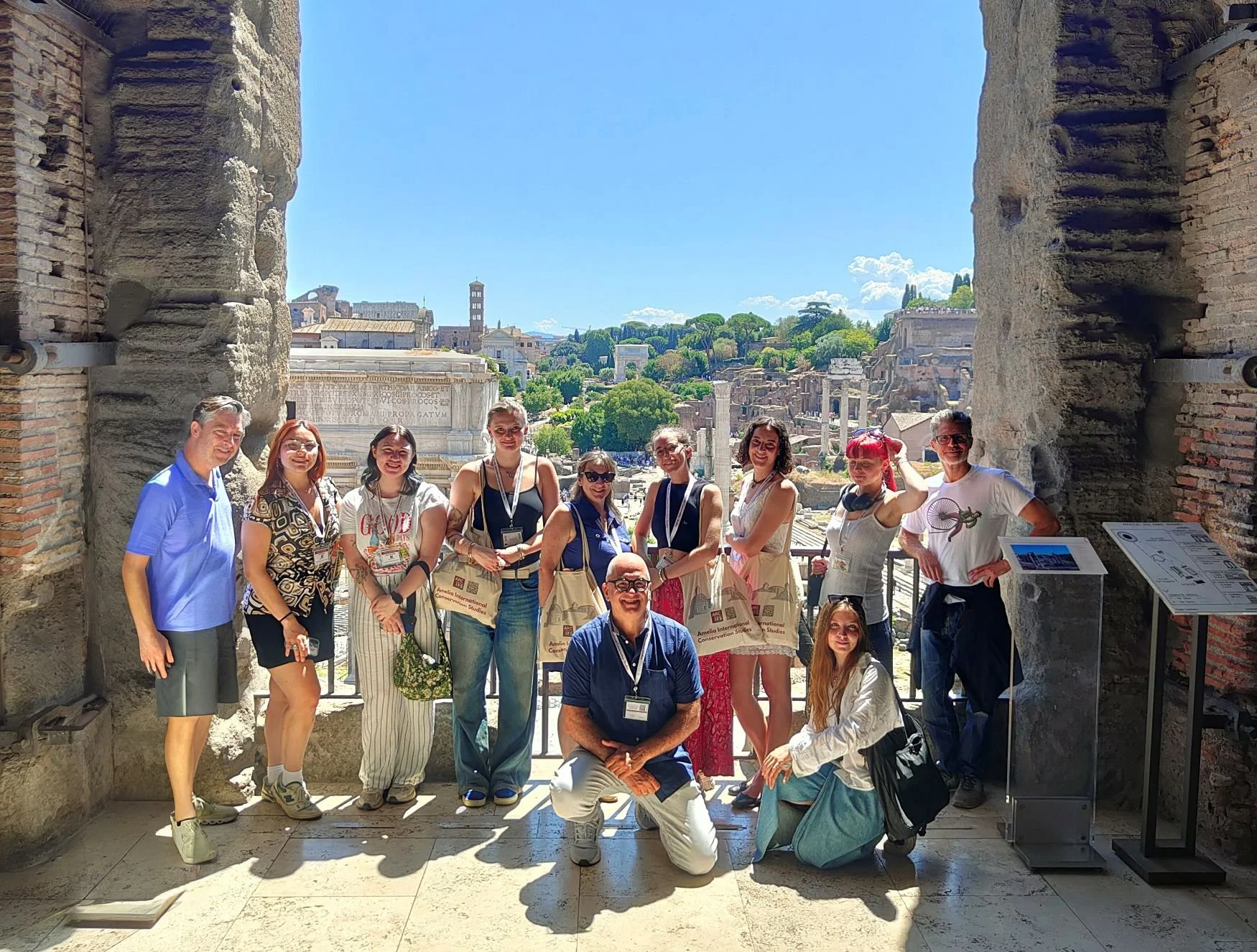FAQs
-
Based on our experience and the success of our previous programs, we estimate that there will be an average of around 10 students per program. This number may fluctuate based on the specific program and demand. Similarly, the number of instructors will be determined based on the needs and requirements of the program, ensuring that there is adequate support and guidance for the students.
-
Our AICS summer programs are divided into two sessions, each offering a unique set of courses. Session 1 includes Programs A, B, C and G, while Session 2 comprises Programs D, E, and F.
Due to the concurrent nature of the programs within each session, students cannot enroll in multiple programs within the same session. For example, it is not possible to participate in both Program A and Program B, as they run simultaneously during Session 1. Similarly, students cannot enroll in both Program D and Program E, as they are offered concurrently in Session 2.However, our schedule is designed to provide flexibility for students who wish to maximize their learning experience. Students have the option to apply for one program in Session 1 and another program in Session 2. This allows for a diverse and immersive educational experience, as students can explore different subjects and areas of interest across the two sessions.
We encourage students to carefully review the program offerings and schedules to determine which combination of programs best aligns with their academic goals and interests. Our team is available to provide guidance and support throughout the application process to ensure that students make informed decisions about their summer study plans.
-
The program at AICS continues to welcome students from different backgrounds and with varying experience levels. The application process is designed to assess your experience and interests. It is uncommon for a student to apply and not be suitable for the program. However, in the event of a high number of applications, some students may be placed on a waiting list. To secure your spot, it is crucial to submit the application fee and program deposit promptly. If, for any reason, your application is not accepted, deposit fees will be refunded according to the refund policy.
-
Please note that AICS is not an accredited program, and in order to receive academic credit, you must apply through a university. However, all participants in AICS programs will receive a graded evaluation and a certificate of completion upon request. The standard level is College Level, which is suitable for most participants. However, if a participant has previous experience in restoration or is part of a master's program in conservation, they can apply at the Graduate Level. Those applying at the Graduate Level may need to discuss additional work with the AICS faculty, usually involving an extra written assignment, in order to receive credit. On the other hand, if a participant chooses to audit the program, they will receive a certificate of participation but not a graded evaluation. While auditing the program, it is still possible to receive certification for completing all the coursework and field experience, which can serve as a valuable addition to a resume when applying for further education or a restoration-related job.
-
Upon receiving your application form, we will promptly communicate with you if there are any questions or concerns. The application process will continue in collaboration with you. Official acceptances to the program will be issued as soon as we receive the three required documents: proof of age, a letter of recommendation, and, if applicable, a transcript, along with the program deposit. For further details, please refer to our application instructions.
Furthermore, according to the payment form, the sooner we receive the full payment, the better it will be for finding airfare tickets at a good price. This is because we will be able to confirm the program earlier, allowing everyone to make their airfare arrangements in a timely manner -
While we cannot guarantee specific job placements, we have found that the hands-on field work and the reputation of our faculty offer participants valuable practical experience and recognition within the conservation community. These factors can enhance your resume and increase your chances of securing positions related to restoration and conservation. Our graded evaluations can be helpful in applications to master degree courses and to applications of employment.
-
If there are still available spaces in the program you intend to join, it may be possible to apply after the deadline (March 1st). However, it is crucial that you promptly reach out to Sotirios Kourtesis at sotirios.kourtesis@arcifs.org if you wish to submit a late application. All payments on the schedule will be due and non-refundable at that point.
-
The specific costs and fees for the program can be found on the Tuition page of our website. Please be aware that if you are applying to obtain credit, there may be an additional fee that will be determined by your home university.
-
To ensure the validity of your application, the program deposit must be sent as soon as you receive the payment form, as this secures your place in the program.
Without the payment of the program deposit, we cannot confirm your acceptance into the program. Additionally, certain courses may reach their maximum capacity, which could result in you being placed on a waiting list. Consequently, there is a possibility that you may miss the opportunity to participate in the program for the current year. Therefore, we highly encourage applicants to submit the program deposit immediately upon receiving the payment form to secure their place in the program. -
We confirm that in the event you are not accepted into the program, we will refund the deposit. However, the application fee is non-refundable.
As soon as we receive the required documents and deposit, you will receive an acceptance letter from us that you are accepted into the program. Please note that the sooner we receive tuition payments, the better positioned we will be to confirm the program will proceed. In the event of program cancellation due to a pandemic or any other extraordinary circumstances decided by AICS, applicants will receive a full refund. If an applicant decides to withdraw their application after March 1st neither the application fee nor the program deposit will be refunded. Applicants who are not accepted into the program will be promptly informed by AICS, and deposit fees paid will be refunded. -
While we do not have scholarships specifically provided by our organization, we do want to emphasize that our program is one of the more affordable study abroad options available. We recommend checking with your university, as some students may be eligible for financial support to attend our program. Additionally, applying for a loan from a financial institution is another option that some students pursue.
Here are a few resources that may assist you in finding funding opportunities:
- NAFSA, the Association of International Educators, offers an extensive page with information on federal, state, and private grants that support various types of study abroad programs.
- The Institute for International Education has created a searchable directory featuring comprehensive descriptions of numerous study abroad scholarships, fellowships, grants, and paid internships for U.S. undergraduate, graduate, and post-graduate students, as well as professionals.
Additionally, there are other scholarships available such as those offered by the Committee on Minority Scholarships of the American Philological Association (APA), which supports minority undergraduate students pursuing studies in classics or classical archaeology. The maximum award amount for this scholarship is $4,000.
Another option to explore is the Fund for Education Abroad, which provides awards of up to $10,000 for U.S. citizens or permanent residents currently enrolled as undergraduates in U.S. universities/colleges and planning to study abroad for at least four weeks.
We encourage you to research these resources and dedicated scholarships to determine if you qualify for any specific awards that may help you fund your participation in the program. -
The accepted form of payment for the program is through wire transfers. This method allows for secure and efficient transactions. Please ensure that you have the necessary banking information required for wire transfers, such as the recipient's name, account number, and any additional details provided by the program organizers.




